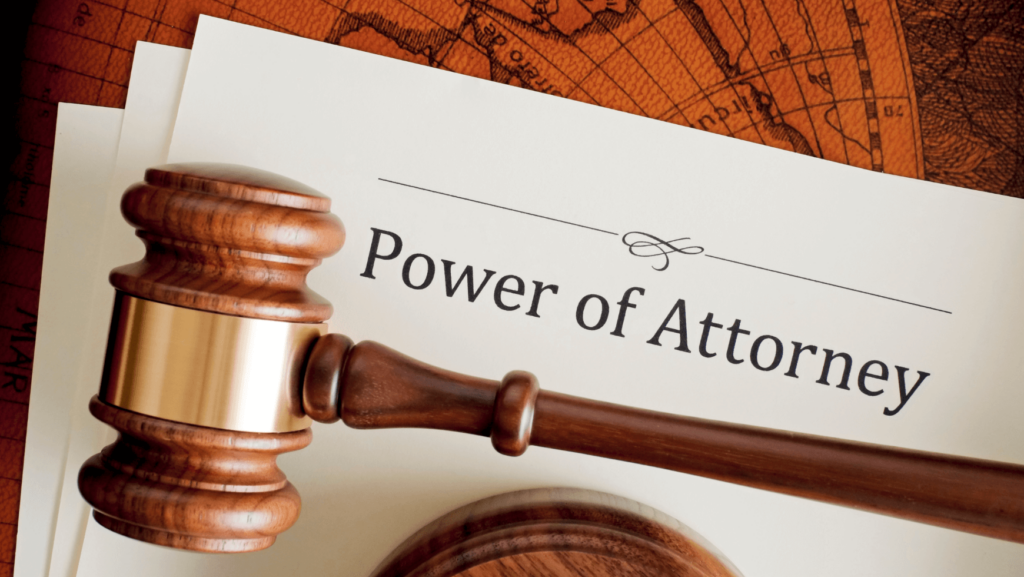A Power of Attorney (POA) is a legal instrument that authorizes a person (the “agent” or “attorney-in-fact”) to act on behalf of another person (the “principal”) in legal or financial matters. In Thailand, Powers of Attorney are widely used in real estate transactions, business operations, banking, litigation, and other official dealings—especially when the principal is unable to be present.
Understanding the types of Power of Attorney in Thailand is essential for anyone conducting personal or commercial transactions in the country, whether they are Thai nationals, expatriates, or foreign investors.
Main Types of Power of Attorney in Thailand
1. General Power of Attorney (GPOA)
A General Power of Attorney grants the agent broad powers to act on behalf of the principal in a wide range of legal or financial matters. This could include:
-
Managing real estate or bank accounts
-
Signing contracts and legal documents
-
Paying taxes and utility bills
-
Handling company or administrative matters
However, a GPOA cannot be used for every legal matter, especially those requiring the principal’s personal appearance or consent, such as marriage registration, divorce, or drafting a will.
Key Features:
-
Broad scope of authority
-
Often notarized or legalized for added credibility
-
Suitable for long-term or ongoing representation
Common Uses:
-
Appointing a family member or lawyer to manage finances or properties
-
Allowing a trusted agent to oversee business operations during long absences
2. Specific Power of Attorney (SPOA)
A Specific Power of Attorney grants the agent limited authority to perform a specific task or represent the principal in a single transaction. It clearly outlines the exact action, such as:
-
Selling or buying a particular property
-
Registering a car at the Department of Land Transport
-
Collecting a debt or cashing a cheque
-
Signing a lease agreement
SPOAs are very common in Thailand and are often required to follow government-issued templates, particularly in property transactions.
Key Features:
-
Clearly defined task
-
Valid only for that specific transaction or purpose
-
Usually time-bound or revocable after the task is completed
Common Uses:
-
Real estate sales and purchases
-
Immigration and visa matters
-
Corporate filings and registrations
3. Government-Issued Power of Attorney Forms
For specific dealings with Thai government agencies, standardized POA forms are often required. These include:
-
Land Office POA (Tor Dor 21): Used when assigning someone to act on your behalf for land or property transactions at the Land Department. It must be signed in front of a qualified officer or a notary public in Thailand and often needs to be certified by a Thai Embassy if signed abroad.
-
DLD Power of Attorney: Issued by the Department of Land Transport for transferring vehicle ownership or registration.
These forms are strictly regulated and must be filled out correctly to be accepted.
Key Features:
-
Pre-defined format
-
Only valid for government agency use
-
Often requires identification documents and witness signatures
4. Durable Power of Attorney
A Durable Power of Attorney remains in effect even if the principal becomes mentally incapacitated. While this concept exists in many legal systems, in Thailand it is not officially codified as a separate legal category.
However, in practice, a POA can include clauses indicating that it is to remain in force despite the principal’s disability or illness. For such a document to be enforceable, it must be carefully drafted by a qualified Thai lawyer.
Common Uses:
-
Long-term care or medical decision-making
-
Managing assets in case of illness or incapacity
Note: Thai courts may still require court-appointed guardianship if the principal is deemed unfit to make decisions.
5. Revocable vs. Irrevocable Power of Attorney
Most POAs in Thailand are revocable, meaning the principal can cancel the POA at any time with written notice. However, some POAs may be drafted as irrevocable for the duration of a specific transaction, especially if one party has provided consideration or the POA is part of a contractual obligation.
Example:
An irrevocable POA may be used in a real estate transaction where a lawyer needs authority to complete a property transfer even if the principal is overseas.
6. Power of Attorney for Foreigners
Foreign nationals frequently use POAs in Thailand, especially for:
-
Purchasing or selling condominiums
-
Authorizing lawyers or property agents to handle land office work
-
Conducting banking or financial transactions
If a POA is signed outside of Thailand, it must be:
-
Notarized by a Notary Public in the foreign country
-
Legalized by the Thai Embassy or Consulate
-
Translated into Thai and certified by a licensed translator, if necessary
Documents not properly authenticated will likely be rejected by Thai authorities.
7. Power of Attorney in Business Operations
In Thai companies, POAs may be issued to:
-
Empower a director or employee to sign on behalf of the company
-
Assign authority to external legal representatives
-
Facilitate tax filings, customs declarations, or board meetings
These POAs should be signed by the authorized director(s) and stamped with the company seal (if applicable), and are often required by banks, the Revenue Department, and other government bodies.
Key Legal Considerations
-
Authentication: Depending on the use, the POA may need to be notarized, witnessed, or legalized.
-
Language: Bilingual POAs are often necessary when dealing with foreign entities.
-
Revocation: POAs should include clear terms for revocation, duration, and scope of authority.
-
Risk management: Choose agents carefully, as misuse of authority can result in legal disputes or financial loss.
Conclusion
Power of Attorney is a powerful legal tool in Thailand that enables individuals and businesses to delegate authority for a wide range of purposes. Whether it’s managing real estate, completing transactions, or representing someone in legal matters, choosing the right type of POA and understanding the legal requirements is crucial for effective use.
Always consult with a qualified Thai lawyer to draft or review your POA to ensure that it complies with local laws, meets formalities, and protects your interests—especially in high-stakes or cross-border matters.

